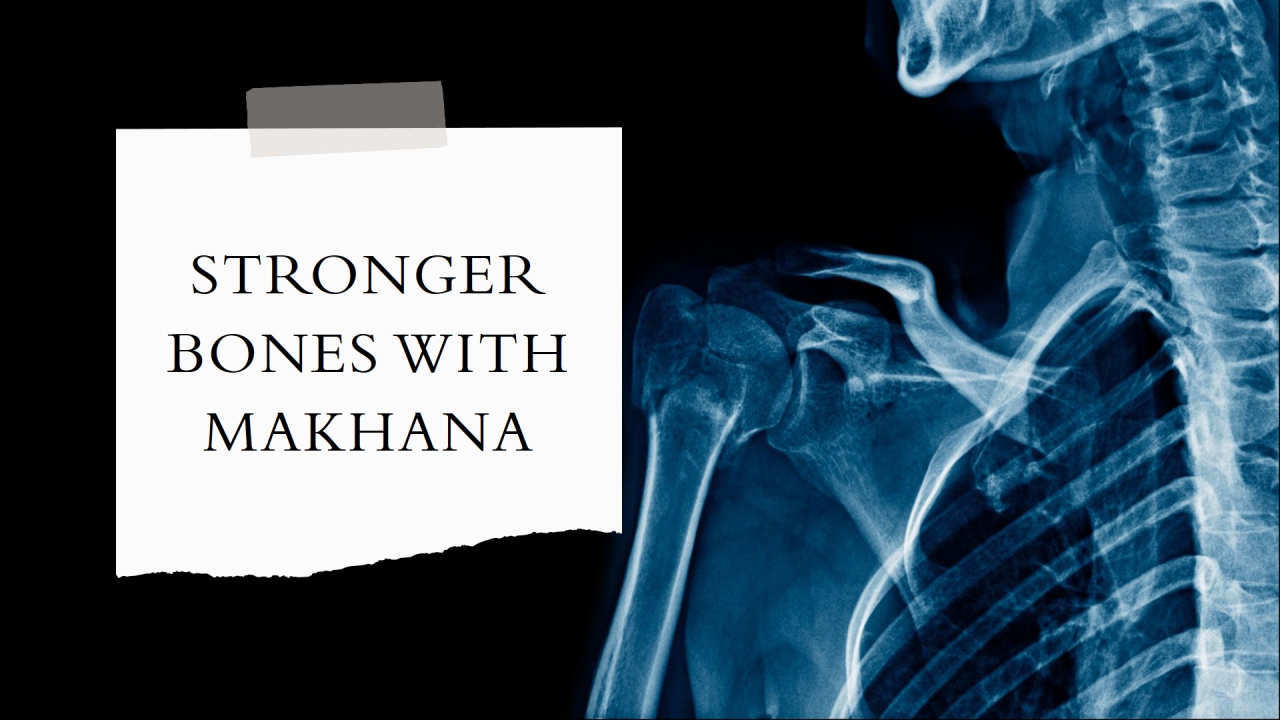Makhana, also known as fox nuts or lotus seeds, has long been celebrated for its various health benefits. One particularly noteworthy aspect of makhana is its positive impact on bone health, thanks to its rich content of essential minerals such as calcium and phosphorus. These minerals play a crucial role in maintaining strong and healthy bones, making makhana a valuable addition to the diet for those looking to support their skeletal system naturally.
Calcium is one of the primary building blocks of bone tissue. It is essential for the development and maintenance of a robust skeletal structure. Regular intake of calcium is vital to prevent conditions such as osteoporosis, a disease characterized by brittle and fragile bones, which is common among older adults. Makhana provides a significant amount of calcium, contributing to the daily calcium requirements necessary for bone strength and density. This makes it especially beneficial for individuals at risk of calcium deficiency, such as postmenopausal women and the elderly.
Phosphorus, another key mineral found in makhana, works in tandem with calcium to fortify bones and teeth. Approximately 85% of the body’s phosphorus is found in bones and teeth, highlighting its importance in skeletal health. Phosphorus aids in the formation of hydroxyapatite, the mineral complex that gives bones their rigidity and strength. A balanced intake of phosphorus is essential not only for bone health but also for the proper functioning of cells and the production of energy. By consuming makhana, individuals can ensure they are receiving adequate phosphorus to support these critical bodily functions.
Beyond calcium and phosphorus, makhana contains other nutrients that contribute to bone health. For example, it has a modest amount of magnesium, which is crucial for the structural development of bone and the synthesis of DNA and RNA. Magnesium also plays a role in converting vitamin D into its active form, which helps in the absorption of calcium in the intestines. Therefore, the presence of magnesium in makhana enhances the bioavailability of calcium, making it more effective in bone strengthening.
Incorporating makhana into the diet is simple and versatile, making it easy to reap these bone-health benefits. Makhana can be roasted and eaten as a crunchy snack, added to soups and salads, or included in a variety of dishes such as curries and stir-fries. This flexibility allows it to be seamlessly integrated into daily meals, providing a convenient way to boost mineral intake.
Moreover, makhana is low in calories and fat, making it an ideal choice for those who need to manage their weight while ensuring they get essential nutrients for bone health. Maintaining a healthy weight is also crucial for bone health, as excess weight can put additional stress on the skeletal system, leading to joint issues and other complications.
While makhana offers numerous benefits, it is essential to consume it as part of a balanced diet. Relying solely on makhana for calcium and phosphorus needs is not practical; it should complement other sources of these minerals, such as dairy products, leafy greens, nuts, and seeds. Additionally, regular physical activity, especially weight-bearing exercises, is critical to stimulate bone formation and maintain bone density.

